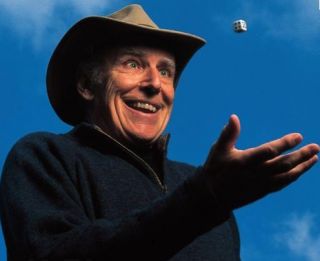
Dear Luke,
In DICEWORLD, you say that you found your voice when you wrote the book, and I can tell that it was written with enthusiasm. I found my voice when I started blogging. It has been a liberating experience compared with the onerous work of producing an academic journal article, where you have to follow encrusted traditions to appease editors and reviewers.
One stream of blog posts has been about free will and determinism and my tolerance for the free will crowd atrophied rapidly. The idea of libertarian free will is oxymoronic (or just moronic) in my view. Here are some sample posts (this and that and the other). So I have become a hard determinist. Many events in this world, particularly complex ones, may seem random (or free), but they are determined nonetheless, and chaos mathematics is a good way to describe it. If true randomness exists at the quantum level, there is no reason to believe it is possible at the macro level.
If determinism is anathema to free will, it is also anathema to true randomness. The toss of a die is a chaotic event. From the human point of view, we can treat it as random, though, because no matter how hard we try, we cannot predict the outcome of an individual toss. I think this is where the Dice Man comes in. If libertarian free will is impossible, the die can free people. Without the die, we're moving along the path laid out by the plurality of the causal forces at work, including genetics, habits, cultural conventions, our own fears, and what have you. With the die, the plurality is broken. Different options are on the table, their probabilities are chosen (deterministically, yes, but they now have the chance assigned to them), and therefore, different behavior can show itself.
My old stand-by example is a choice between going out to see a French movie or an Italian movie. Suppose the preference for French is just a little bit stronger. The person will always choose the French movie, consider himself free, and be considered rational by economists. If the person knows, however, that his preference for French over Italian movies is 2:1, he can assign these odds to the die. Some biologists will like this idea more than economists and psychologists because it is a model of foraging (vs. exploitation). Many animals try out new food patches (or mates) even while the first one is still productive.
In the human case, the die can help people overcome fear and boredom, and in the process they can learn more about their different selves that ordinarily don't get a chance (literally and metaphorically) against the plurality self (I am just paraphrasing the Dice Man here).
My plan for the next class session is clear. I will bring dice and have the students play. Breaking the die rule, I assign 1:1 odds to this plan.
Playfully Yours
Letter 2
Dice Man,
I brought 2 dice to class and it worked as hoped. The giggling, the nervousness, the incredulity, it was all there. Even after 30 minutes they were still looking at me for guidance. That I could hardly believe. I said "Talk to the dice." I think the students got a glimmer of the idea that habit, fear, and boredom are cozy enemies that can be confronted.
For my part, I said I would plank on the table if the dice came up 7, 11, or evens (pretty short odds) and so it went.
I feel I showed the students a window, and I have never seen them so excited during the semester. I wonder if they understand that this session was an experiment for me as well, a way to get out of boredom, fear, and habit.
Onward, as you say.


